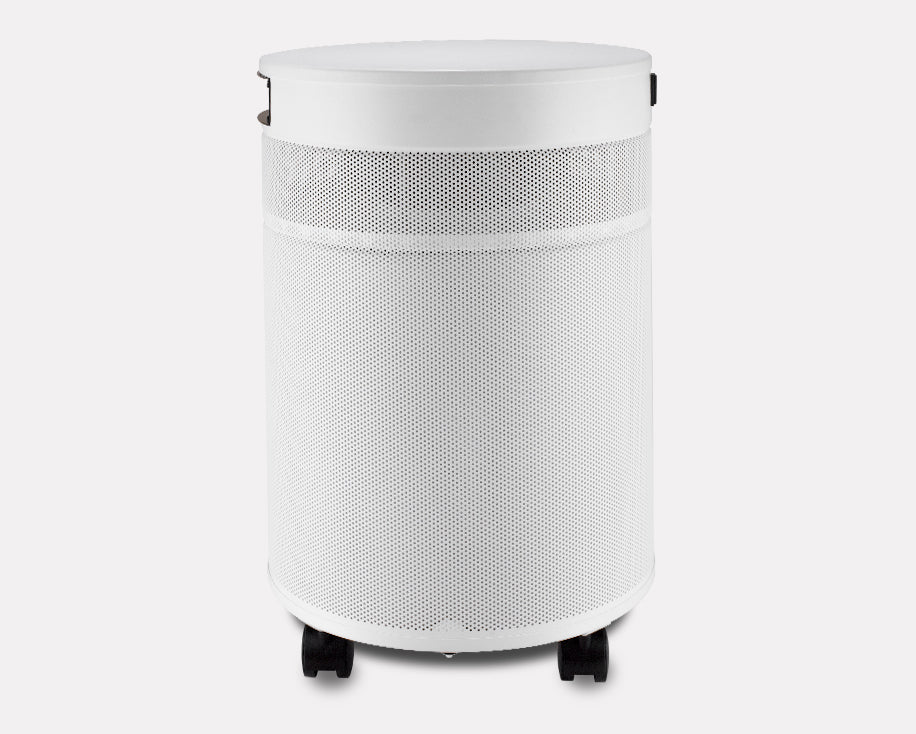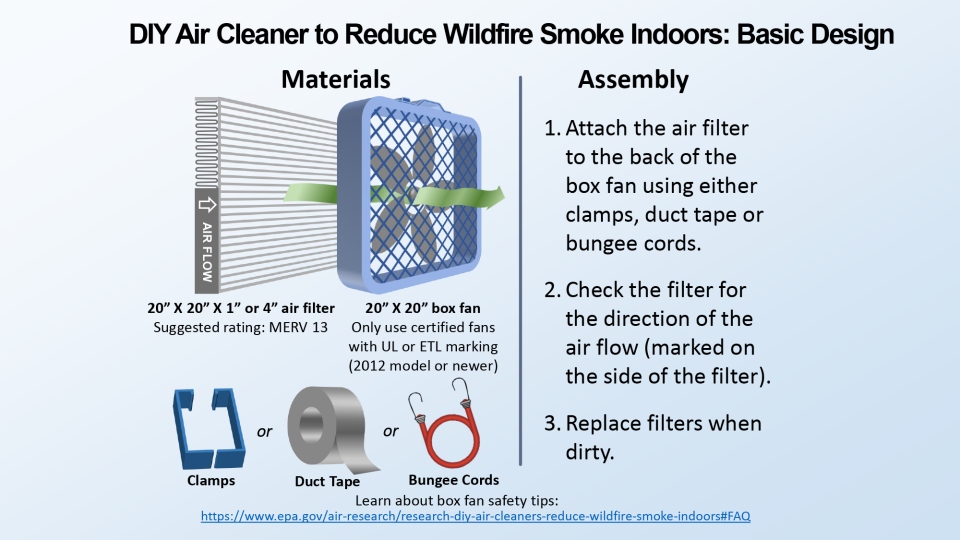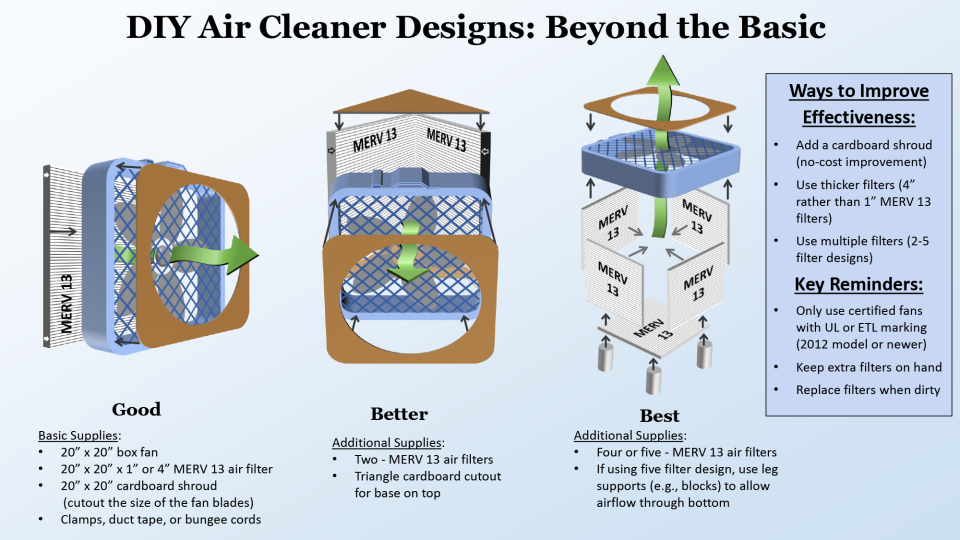Air purifiers are essential for clean air in your home. They combat different pollutants, including wildfire smoke and cigarette smoke.
Comparing air purifiers for wildfire smoke and cigarette smoke helps you choose the best one for your needs. Wildfire smoke contains fine particles and chemicals that can harm your lungs. Cigarette smoke, on the other hand, includes tar and nicotine, which are also dangerous.
Both types of smoke require specific filters to remove harmful particles. Understanding these differences ensures you pick an air purifier that effectively protects your health. This guide will explore the features and benefits of each type, helping you make an informed decision. Clean air is crucial, and choosing the right air purifier is a step towards a healthier home.
Introduction To Air Purifiers
Air purifiers are essential tools for maintaining clean air indoors. They help remove harmful particles, ensuring a healthier environment. Wildfire smoke and cigarette smoke are common indoor pollutants. Each requires a specific type of air purifier to effectively reduce their presence.
Importance Of Air Quality
Good air quality is crucial for health. Poor air quality can lead to respiratory issues, allergies, and other health problems. Using air purifiers can significantly improve indoor air quality, making your home safer and more comfortable.
Common Pollutants
Different pollutants can affect indoor air quality. Here are some common ones:
- Wildfire Smoke: Contains fine particles (PM2.5), ash, and chemicals.
- Cigarette Smoke: Contains tar, nicotine, carbon monoxide, and other chemicals.
Understanding these pollutants helps in choosing the right air purifier. Below is a table comparing the pollutants from wildfire smoke and cigarette smoke:
| Pollutant Source | Common Pollutants | Health Impacts |
|---|---|---|
| Wildfire Smoke | PM2.5, Ash, Chemicals | Respiratory Issues, Eye Irritation |
| Cigarette Smoke | Tar, Nicotine, Carbon Monoxide | Lung Cancer, Heart Disease |
Wildfire Smoke And Its Effects
Air purifiers for wildfire smoke and those for cigarette smoke are designed differently. Wildfire smoke contains larger particles, requiring specific filters. Cigarette smoke has smaller particles and harmful chemicals, needing advanced filtration.
Wildfires are becoming more common. They burn forests and release smoke. This smoke spreads far and wide. It affects air quality even miles away. People breathe in this smoke. It is harmful to health.Composition Of Wildfire Smoke
Wildfire smoke contains many particles. These particles are tiny. They include ash and soot. Gases like carbon monoxide are present too. Volatile organic compounds (VOCs) mix in the air. All these components make the smoke dangerous.Health Impacts
Breathing wildfire smoke can cause problems. Short-term exposure leads to coughing and throat irritation. Some people get headaches. Eyes can become red and itchy. Long-term exposure is worse. It can affect the lungs. Asthma and other lung diseases may get worse. Children and the elderly are at higher risk. Pregnant women should be careful too. Wildfire smoke affects everyone. Even healthy people can feel its effects. Breathing clean air is crucial. Knowing about air purifiers can help. Choose the right one for your needs. “`Cigarette Smoke And Its Effects
Air purifiers for wildfire smoke and cigarette smoke serve different purposes. Wildfire smoke purifiers focus on particulate matter, while cigarette smoke purifiers target chemicals and odors.
Cigarette smoke is harmful. It affects both smokers and non-smokers. Understanding its composition and health impacts is crucial. This knowledge helps in choosing the right air purifier.Composition Of Cigarette Smoke
Cigarette smoke contains many chemicals. More than 7,000 different chemicals are present. Some are toxic. Others are cancer-causing. Tar, nicotine, carbon monoxide, and formaldehyde are common. These substances are harmful to health.Health Impacts
Cigarette smoke affects the lungs. It causes diseases like bronchitis and emphysema. Smoking leads to lung cancer. Non-smokers also suffer. Secondhand smoke is dangerous. It causes respiratory problems. It increases the risk of heart disease. Children are especially vulnerable. They can develop asthma and ear infections. Understanding these effects is important. It highlights the need for effective air purifiers. Clean air is essential for good health. “`Air Purifiers For Wildfire Smoke
Air purifiers are essential during wildfire season. They help remove harmful particles from the air. Wildfire smoke contains tiny pollutants. These can harm your health. Choosing the right air purifier is crucial.
Key Features
Air purifiers for wildfire smoke have special filters. HEPA filters are a must. They capture tiny particles. This includes smoke and ash. Another key feature is a high CADR rating. CADR stands for Clean Air Delivery Rate. A higher CADR means faster air cleaning.
Look for purifiers with activated carbon filters. They remove odors and gases. Consider the size of the room. Choose a purifier that fits. Some models have smart sensors. These adjust the purifier’s settings automatically. They detect smoke levels in real-time.
Best Technologies
HEPA filtration is the best technology for wildfire smoke. It captures 99.97% of tiny particles. This includes smoke, dust, and pollen. Activated carbon filters are also important. They absorb harmful gases and odors.
Some air purifiers use UV-C light. This kills bacteria and viruses. It adds an extra layer of protection. Another useful technology is ionization. It helps remove particles from the air. It works by charging particles. This makes them stick to surfaces.
Choose an air purifier with a combination of these technologies. It ensures the best air quality. A good air purifier can make a big difference during wildfire season.
Air Purifiers For Cigarette Smoke
Air purifiers for cigarette smoke are designed to remove harmful particles and odors. Wildfire smoke purifiers focus on larger particles and chemicals. Both types improve indoor air quality.
Cigarette smoke can make indoor air quality poor. The smell lingers. Harmful chemicals stay in the air. An air purifier helps. It removes smoke and odors. It makes the air healthier to breathe. This section will explore the key features and best technologies of air purifiers for cigarette smoke.Key Features
Air purifiers for cigarette smoke have special filters. They capture tiny particles. These filters include HEPA and activated carbon. HEPA filters trap small particles like tar. Activated carbon filters remove odors and chemicals. Together, they clean the air effectively. Another key feature is the purifier’s airflow rate. A higher rate means faster air cleaning. This is important for spaces with heavy smoke. Noise level is also a consideration. Quiet purifiers are better for homes and offices. They provide clean air without disruption.Best Technologies
HEPA filtration is a leading technology. It removes 99.97% of particles. These particles include tar and ash. HEPA filters are effective and reliable. Activated carbon filters are another top technology. They absorb volatile organic compounds (VOCs). These VOCs are found in cigarette smoke. The carbon filter neutralizes odors. It makes the air smell fresh. Some air purifiers use UV-C light. This technology kills bacteria and viruses. UV-C light adds an extra layer of protection. It ensures the air is not only clean but also safe. Lastly, ionizers can be effective. They release negative ions. These ions attach to smoke particles. The particles become heavy and fall. This reduces the amount of smoke in the air. Choosing the right air purifier can make a big difference. It helps create a healthier living space. It removes harmful smoke and makes the air clean. “`Comparing Filter Types
Choosing the right air purifier is essential for clean air. Whether dealing with wildfire smoke or cigarette smoke, filter types matter. Let’s explore the differences between HEPA filters and activated carbon filters. Understanding these filter types helps in making informed decisions for healthier living spaces.
Hepa Filters
HEPA filters are highly efficient in trapping particles. They can capture 99.97% of particles as small as 0.3 microns. This makes them ideal for removing smoke particles from the air. Wildfire smoke contains fine particles that HEPA filters can effectively trap.
For cigarette smoke, HEPA filters also work well. They capture tar and ash particles. However, they do not remove the gaseous components of cigarette smoke. Hence, while they are effective, they may not be sufficient alone.
Activated Carbon Filters
Activated carbon filters excel in removing odors and gases. They are particularly good at trapping volatile organic compounds (VOCs). Wildfire smoke contains various gases that activated carbon filters can absorb. These filters help reduce the smell and harmful gases from wildfire smoke.
For cigarette smoke, activated carbon filters are essential. Cigarette smoke contains many harmful gases and odors. Activated carbon filters can absorb these toxins, making the air cleaner. Combining them with HEPA filters provides comprehensive air purification.
| Filter Type | Effectiveness for Wildfire Smoke | Effectiveness for Cigarette Smoke |
|---|---|---|
| HEPA Filters | High | Moderate |
| Activated Carbon Filters | Moderate | High |
Choosing the right combination of filters enhances air purification. For wildfire smoke, prioritize HEPA filters. For cigarette smoke, use a mix of HEPA and activated carbon filters. This ensures comprehensive removal of particles and gases.
Performance And Efficiency
When choosing an air purifier, understanding its performance and efficiency is crucial. Two common pollutants are wildfire smoke and cigarette smoke. Each presents unique challenges for air purifiers. This section discusses how air purifiers handle these different types of smoke.
Effectiveness For Wildfire Smoke
Wildfire smoke contains tiny particles. These particles are called PM2.5. They are harmful to human health. An effective air purifier for wildfire smoke must capture these particles. HEPA filters are very effective. They can capture 99.97% of particles as small as 0.3 microns.
Some purifiers also use activated carbon filters. These filters remove odors and chemicals. They enhance the purifier’s performance. For the best results, look for a purifier with both HEPA and activated carbon filters.
Here’s a quick comparison of features:
| Feature | Effectiveness |
|---|---|
| HEPA Filter | Captures PM2.5 particles |
| Activated Carbon Filter | Removes odors and chemicals |
| Airflow Rate | High airflow rate is better |
Effectiveness For Cigarette Smoke
Cigarette smoke is different. It contains tar, nicotine, and other chemicals. These particles are sticky. They can cling to surfaces. An effective air purifier for cigarette smoke needs strong filters.
HEPA filters help but may not be enough alone. Activated carbon filters are crucial. They absorb chemicals and odors. Some air purifiers also have photoelectrochemical oxidation (PECO) technology. PECO breaks down pollutants at a molecular level. This makes it very effective for cigarette smoke.
Consider these factors:
- HEPA Filter: Traps larger particles
- Activated Carbon Filter: Absorbs chemicals and odors
- PECO Technology: Breaks down pollutants
For the best performance, choose a purifier with multiple filtration technologies. This ensures a cleaner and healthier environment.

Credit: www.airpura.com
Cost And Maintenance
When choosing an air purifier, understanding cost and maintenance is essential. Different air purifiers are designed for different needs, such as dealing with wildfire smoke or cigarette smoke. Below, we explore the initial costs and long-term maintenance of these devices.
Initial Costs
Air purifiers for wildfire smoke often have higher initial costs. These devices usually come with advanced filters like HEPA and activated carbon filters. Expect to spend between $200 to $800 for a good quality purifier.
On the other hand, air purifiers for cigarette smoke tend to be more affordable. Basic models can start at around $100, but high-end models with better filtration can cost up to $600.
Long-term Maintenance
The long-term maintenance of air purifiers varies. For wildfire smoke purifiers, regular filter replacements are crucial. HEPA filters need replacing every 6-12 months, while activated carbon filters require changing every 3-6 months. This can cost an additional $50 to $200 per year.
For cigarette smoke purifiers, maintenance is similar but may involve more frequent filter changes due to higher particle density. This could increase yearly maintenance costs to $70 to $250.
| Type of Air Purifier | Initial Cost | Annual Maintenance Cost |
|---|---|---|
| Wildfire Smoke | $200 – $800 | $50 – $200 |
| Cigarette Smoke | $100 – $600 | $70 – $250 |
Understanding these costs helps make an informed decision. Choose the air purifier that best fits your needs and budget.
User Reviews And Ratings
User reviews and ratings provide valuable insights into the performance of air purifiers. They help you understand how well an air purifier handles wildfire smoke or cigarette smoke. Reviews often highlight the strengths and weaknesses of different models. This helps you make an informed decision.
Popular Models For Wildfire Smoke
Many users have shared their experiences with air purifiers for wildfire smoke. Here are some of the most highly-rated models:
- Dyson Pure Hot + Cool: Users praise its HEPA filter and air quality sensor. They also like its ability to cool or heat a room.
- Levoit LV-H133: This model is favored for its large coverage area and quiet operation. Reviews highlight its efficiency in removing smoke particles.
- Winix 5500-2: Users appreciate its PlasmaWave technology. They say it effectively breaks down smoke and odors.
Popular Models For Cigarette Smoke
Air purifiers for cigarette smoke also receive various user reviews. Here are some of the top-rated models:
- RabbitAir MinusA2: This purifier gets high marks for its customizable filters. Users say it excels at removing smoke and odors.
- Honeywell HPA300: Reviews highlight its powerful HEPA filter and large room coverage. Users find it effective for cigarette smoke.
- GermGuardian AC4825: This model is popular for its UV-C light feature. Users report it helps eliminate smoke particles and odors.
In conclusion, user reviews and ratings are essential for choosing the right air purifier. They provide real-world feedback on performance and reliability. Whether dealing with wildfire smoke or cigarette smoke, these reviews guide you to the best models available.

Credit: www.epa.gov

Credit: www.mspurelife.com
Frequently Asked Questions
What Makes Air Purifiers For Wildfire Smoke Different?
Air purifiers for wildfire smoke have HEPA filters to trap fine particles. They also often include activated carbon to remove harmful gases and odors.
Can Air Purifiers Remove Cigarette Smoke?
Yes, air purifiers can remove cigarette smoke. Look for models with HEPA and activated carbon filters. These filters capture smoke particles and neutralize odors effectively.
Are Hepa Filters Effective For Both Smoke Types?
Yes, HEPA filters are effective for both wildfire and cigarette smoke. They capture fine particles, improving air quality significantly.
Do Air Purifiers Help With Wildfire Smoke?
Yes, air purifiers help with wildfire smoke. They remove harmful particles and improve indoor air quality, making breathing easier.
Conclusion
Choosing the right air purifier depends on your needs. Wildfire smoke and cigarette smoke differ in particles. Specialized filters work best for each type. Consider room size and purifier features. Regular maintenance ensures peak performance. Clean air improves health and comfort.
Invest in the right purifier for your environment. Your lungs will thank you.
Rakib Sarwar is a Registered Pharmacist and a reputed health and wellness blogger. He has a great interest in Air purifiers.
